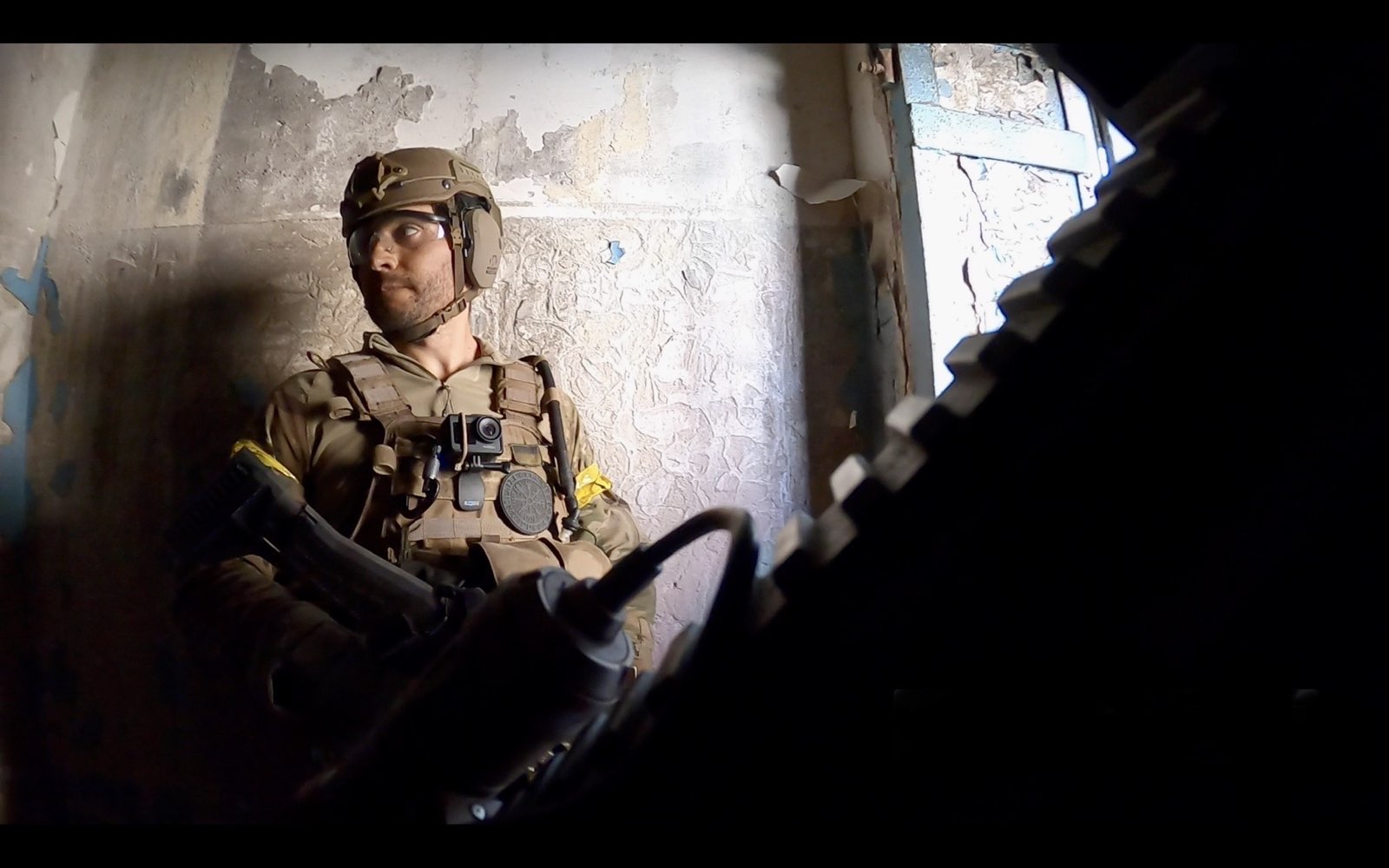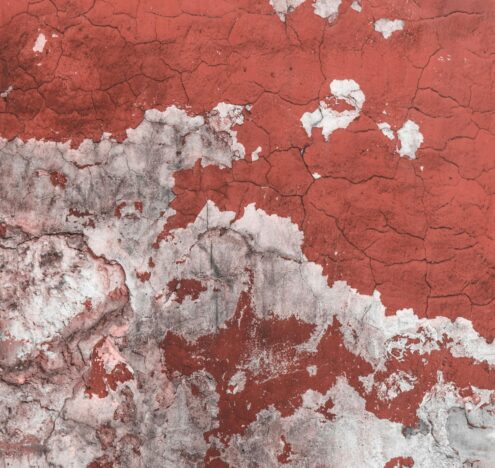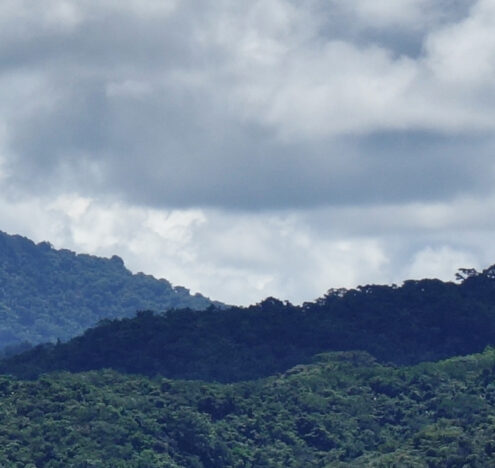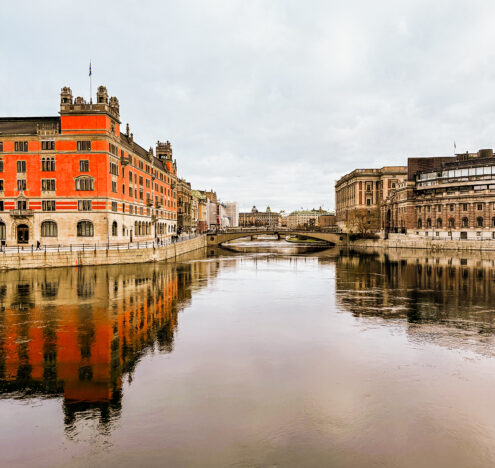“I am about thirty minutes from Zaporizhzhia nuclear plant,” Isaac* said matter-of-factly, “So if there is an explosion, the results would be catastrophic. We would not be able to evacuate in time.”
“There is very little we could do in case this did happen,” he added.
The plant is the largest nuclear power plant in Europe. It has been under Russian occupation since early March 2022, and Russians have used it for nuclear blackmail since then. Locals are fleeing the area because they fear a nuclear mishap and also because of heavy fighting.
“Russians may use the plant for a false flag operation to blame Ukrainians afterward. It is definitely a concern,” Isaac reflected.
He estimates the probability of a nuclear disaster is less than 5%, but never zero.
A Call to Battle
Isaac arrived in Ukraine in mid-March 2022 to volunteer in a newly formed International Legion. The Legion was started by Ukrainian president Volodymyr Zelenskyy on Feb. 24, 2022 in the aftermath of Russia’s invasion of Ukraine to engage international soldiers volunteering to fight. The volunteers sign contracts with Ukraine’s Armed Forces and become a part of Ukraine’s military. According to Ukraine’s Ministry of Defense, approximately 2,000 soldiers joined the Legion; most of them are veterans of foreign armies. They represent 55 countries.
“In February, things changed,” he said as he recalled watching the war in Ukraine from his home in Texas. “I felt there was a once-in-a-century event.”
For Isaac, the invasion was an attack on democratic values.
“I believe in individual rights, human rights, the rule of law, and the right of people to elect their own government, and [President Vladimir] Putin believes in none of those things,” he explained, “I thought that Ukrainians were standing up for liberal democratic values, the same values that we have in the US and many other countries, and it was unfair and unjust for the Ukrainians to be fighting alone. So I felt compelled to provide my service and experience to see what I could do to help.”
A young man from Texas, Isaac speaks English with me and some Spanish. He served as a US marine for 14 years, from 2003 until 2017, achieving a rank of a major. During this period, he said he was deployed to Iraq and Afghanistan fighting against ISIS and insurgents and helping liberate major Iraqi cities like Ramadi and Fallujah.
“That entire time, I was an infantry officer planning and executing combat and security operations,” he proceeded, “I also had non-combat deployments, working with other foreign militaries to train and share tactics and techniques with them. And then, I left in 2017, went back to school, and got an MBA from the University of Texas. Since then, I’ve been working as a management consultant for a global strategy consulting firm and as an investor.”
However, when the Russian invasion started, Isaac decided to put that peaceful life on hold.
“I felt helpless and outraged at the footage that I was seeing and the reports I was reading,” Isaac recalled, “Then, during the first weekend following the initial invasion, I heard Zelenskyy inviting foreign volunteers to come and fight for Ukraine. That’s when I saw a window of opportunity. I didn’t leave the house for one weekend, and only checked news and updates. Then, when I had no side thoughts, I gave myself 48 hours more to weigh the pros and cons of joining the Ukrainian military. Basically, I gave myself two days to make a decision while at the same time, I was already contacting the Ukrainian embassy.”
The embassy asked for Isaac’s background. They said they were interested in his participation because of his experience and skills.
“So after these 48 hours, which was around the tenth day after the invasion, I decided to make a commitment,” Isaac said, “I quit my job and started preparations.”
A week and a half later, he left the United States for Ukraine.
Deployed to Ukraine
Isaac had a limited experience in Ukraine. He visited the country once, in 2019, when he spent a month in Kyiv on a holiday.
“I didn’t have any deep connections with Ukraine before, and no family members either,” he said, “But I saw Ukraine’s potential as the largest country in Europe with a highly educated population. So I thought it was very much underrated and under-invested.”
His trip to Ukraine in 2022 was very different. He flew from Houston to Warsaw, Poland, then he took a cab all the way to the border. That was mid-March 2022.
“I believe in individual rights, human rights, the rule of law, and the right of people to elect their own government, and Putin believes in none of those things.”
“There were many tents and lots of traffic going one way, mostly women leaving Ukraine,” Isaac recalled, “Volunteers were giving out clothes, food, and so on. But there was not much traffic to enter Ukraine. It was just me and a few volunteers. When I showed the Ukrainian border officer my passport, he asked: “International Legion?” I said yes. From there, still holding my bags with all my gear, I walked for about a kilometer and waited in a tent for other volunteers.”
It was already after dark. After a few minutes, an officer showed up and took Isaac and other volunteers to another building, which looked like a middle school where he spent the night.
The next day, they traveled to another village about 45 minutes from the border. There, in a big room in what looked like a volunteer center building, Isaac saw a bigger group of internationals who wanted to join the Ukrainian army.
“There were about 40 volunteers, and that was the first place where I met Americans among them,” Isaac recalled, “There were people from Germany, Sweden, and pretty much every other major country. I met people who served in the Marines just like me.”
After that, the group moved again to what appeared to be a screening center where there were even more volunteers.
“Basically, every time we stopped, we’d join other volunteers,” Isaac proceeded, “What was significant about that day is that this was 12 hours after a missile strike on the military base in Yavoriv, really close to the Polish border and where we were. It was a Russian attempt to discourage internationals from coming into the country.”
Then, Ukrainian officers showed up. They reminded the volunteers that the war was very dangerous and there were many deaths, so people could reconsider. They also said they would be accepting only those with previous combat experience.
“For the next few hours, we lined up and showed our documents to the Ukrainian officers,” Isaac said, “I talked to a Ukrainian major who trained with the US Marines, so we spoke a common language. I was accepted, but there was some bickering because other volunteers were turned away as they had no military experience.”
At the end of the process, about 30 volunteers remained. They received uniforms and weapons and signed the contracts.
“It was a contract that said you were in the Ukrainian Armed Forces for the duration of the martial law, but you could break that contract any time,” Isaac added.
After four days, the group was deployed to Northern Ukraine. At that time, Russians were about 50 minutes away from the capital. Isaac stayed in the barracks in the Southern part of Kyiv where he met more international soldiers.
“My first mission was in Irpin, which is somewhat of an affluent suburb of Kyiv,” Isaac recalled, “This is where the frontline was at that time. We would occupy buildings, observe Russian activity, and attempt to engage them via indirect fire.”
“Then, in mid-April, Russians lost the battle of Kyiv, so they withdrew back to the North across the border,” the man continued, “So the next few months, we were in the South, in Mykolaiv province.”
In the summer, Isaac went back to the United States for a few weeks to take care of personal matters and bought additional gear for the soldiers. After he came back, he was deployed in the Zaporizhzhia, near the nuclear plant.
Fighting the Second-Largest Army in the World
Isaac said that the army organization has improved tremendously in the six months of the war.
“When I showed up, the International Legion had existed for maybe two weeks,” the soldier recalled, “We had the essentials: uniforms, weapons, ammunition, food, and water. It took time, but the organizational challenges have been overcome by now. To be fair, I don’t think that the US or any NATO military would have been able to do much better, given how fast events took place, and under what conditions.”
For Isaac, the biggest challenge is fighting the second-largest army in the world — the Ukrainian militia had to adjust to being outnumbered and outgunned.
“I was used to fighting an asymmetrical warfare in Afghanistan and Iraq, but there, I was on the other side of the equation where we were the strong military fighting a smaller, less well-equipped one,” he said, “So, in this case, we are on the other side, and we had to adapt to the situation and focus on our strengths. We are moving positions quickly, being unpredictable, and focusing on disrupting operations instead of fighting force on force.”
“We need the right weapons, and we need more weapons more quickly,” Isaac continued, “The weapons that we have gotten have done absolute wonders. We need more because it’s imperative to press the advantage once you have momentum. We need more HIMARS, 105-millimeter artillery, the ammunition for those systems, and sophisticated drones. We also need to continue to share intelligence of high-value targets so intelligence support is going to be critical. Besides, we need to toughen up sanctions, so Russians don’t find backdoors to buy arms.”
Isaac is positive that Ukraine will win the war, and with time, his confidence keeps on growing.
“Russians, aside from their fairly rapid gains in the first week or two, had basically slowed to almost a stalemate,” he said, “That’s what I was thinking a couple of weeks ago, and then things have taken a turn for the better.”
Isaac is referring to Ukraine’s counteroffensive underway in Eastern and Southern Ukraine. Ukraine has liberated more than 6,000 square kilometers in less than a month, freeing major parts in the North-East and slowly gaining more ground in the South. It is the biggest and one of the fastest counteroffensives since the World War II.
“This definitely makes me feel even more confident than I was before,” Isaac said, “In the liberated areas, we’ve seen the Russian military break. It is one thing to withdraw in an organized fashion. What we’re seeing is different. The Russian army is in total disarray. So I am highly confident that Ukraine will liberate the areas lost since February and eventually free the territories occupied before such as Crimea.”
Ukraine’s Future
“My parents were completely flabbergasted when I told them I was going to Ukraine,” Isaac reflected, “I have only talked to them once or twice since I came to Ukraine.”
He sighed.
“Ideologically, they are opposed to what I am doing here, and they think that Russia is justified in attacking Ukraine,” he added.
His relationship with them has been strained since the start of the war. He didn’t see or speak to his parents when he visited the United States in the summer.
“I would have liked to see them, but it was just very, very painful,” the soldier said, “It is difficult to face them because of their personal views.”
His friends and sister, on the other hand, support him. Many of his acquaintances are fundraising back in the United States so the funds can help fighters on the ground, and contribute to Ukraine’s future reconstruction.
“Every dollar spent on Ukraine is an investment with a very good rate of return,” Isaac explained, “What will follow Ukraine’s victory will be similar to the Marshall Plan when we invested into rebuilding Europe after the Second World War.”
Isaac hopes that the world will not forget about Ukraine.
“Every day, there are hundreds of people dying in this war,” he said, “It is an absolute outrage what Russia is doing here. They are not complying with the laws of warfare. They regularly target civilian places including supermarkets, residential centers, and train stations. They kidnapped and deported thousands of children to Russia. They forced people in the occupied area to take Russian passports. They blackmail the world with nuclear warfare. One of those things is enough to anger concerned citizens, but the fact that all of them are happening at the same time deserves our full attention and support.”
The soldier plans to stay in Ukraine until victory and beyond. “I want to see Ukraine win, but also rebuild,” he said.
The war has become very personal for Isaac, too. His comrades were murdered.
“Russians killed four of my teammates,” he said.
For the first time, his voice breaks. Throughout the long conversation, Isaac was very calm and collected. We waited in silence for a minute.
“One of my teammates is captured, and another one is missing,” Isaac proceeded, “These are some of the sacrifices my team made in Ukraine.”
He exhaled.
“Russia still has the bodies of the three comrades who have died,” the man continued, “We have not been able to recover the bodies, and I intend to stay in Ukraine to see what I can do to recover them.”
*Isaac asked to be identified by his first name.
All photographs courtesy of Isaac, April-August 2022.





















